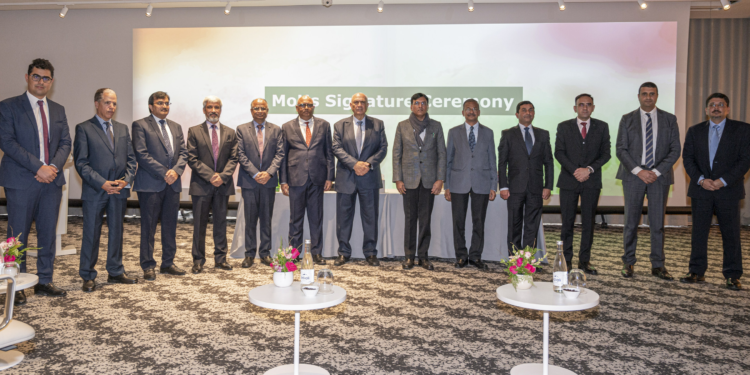The partnership between OCP Group and India aims to conduct joint research and development initiatives, jointly promote innovative fertilisation solutions, and provide farmers in India with fertilisers tailored to their specific needs, according to the company’s press release.
This partnership will collaborate closely with the Indian agricultural ecosystem, including the public sector, agronomic institutes, agricultural federations, farmers, etc.
OCP Group signed the Memoranda of Understanding (MoUs) with India’s largest public and private fertiliser producers. This will enable OCP to supply India with up to 1,7 million metric tonnes (MT) of phosphate fertilisers for the agricultural season for the next twelve months.
The agreements cover up to 700,000 metric tonnes (MT) of Triple Super Phosphate (TSP), a phosphate-based fertiliser with the highest phosphate content among nitrogen-free granular fertilisers.
The TSP can be tailored to meet the specific needs of India’s plants and soils, which is known to be beneficial for soil health and waste reduction. The MOUs require the delivery of 1,000,000 tonnes of diammonium phosphate (DAP) to Indian farmers in addition to TSP.
DAP is a common fertiliser that provides plants with additional nutrients, particularly phosphorus and nitrogen. This partnership will assist Indian farmers in accessing more customised fertilisers, thereby increasing crop yield and productivity.
Mr Soufiyane El Kassi, Chairman and CEO of OCP Nutricrops, the group’s subsidiary dedicated to soil health and plant fertilisation solutions, said: “We are pleased with India’s interest in our customised solution (TSP) that significantly contributes to increasing yields, improving farmers’ incomes and accelerating the implementation of sustainable agricultural practices.”
Recently, the group unveiled a new Green Investment Strategy to increase fertiliser production and invest in renewable energy between 2023 and 2027. The strategy’s objective is to utilise 100 per cent renewable energy by 2027 and to be carbon neutral by 2040. Globally, a total of $13 billion will be spent on it. In addition, the plan includes achieving 560 million m3 of water desalination capacity by 2026 and an increase in the production of green fertilisers.



